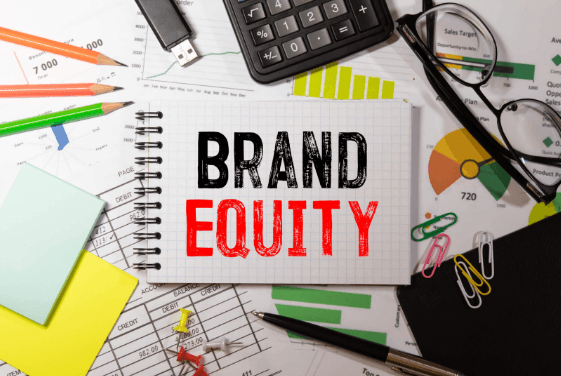Brand equity is a term that businesses use to describe the value a brand adds to a company. It refers to how customers view a brand and how much they trust it. When a brand has strong equity, it means customers are more likely to buy from that company, even if prices are higher than competitors.
Building brand equity takes time and effort. Companies with strong brand equity often enjoy customer loyalty, positive word-of-mouth, and the ability to charge more for their products or services. In this blog post, we will explain what brand equity is and how businesses can build and maintain it.
Understanding Brand Equity: The Basics You Need to Know
Brand equity is the value a brand brings to a company. It’s how customers think about a brand and how much they trust it. When people recognize a brand and feel positive about it, that’s strong brand equity. It helps businesses grow by attracting loyal customers.
Every time a customer buys from a brand they trust, it increases that brand’s equity. This makes the brand more valuable because people are more likely to choose it over others. Companies with strong brand equity can also charge more for their products, as customers are willing to pay for something they trust and believe in.
How Brand Equity Impacts Customer Trust and Loyalty
When a company has good brand equity, customers feel more confident buying from them. This trust comes from seeing the company’s consistent quality and great customer service. When a customer feels safe and valued, they are more likely to return.
Customers who trust a brand are also likely to tell others about it. This word-of-mouth marketing is powerful and can increase a brand’s value. Over time, as more people trust a brand, its equity grows, and so does its customer base.
The Key Elements of Strong Brand Equity
Strong brand equity doesn’t happen by chance. It takes the right combination of elements to build it. Here are a few key components:
- Brand Awareness: Customers need to know about the brand. If they don’t know the brand exists, it won’t grow.
- Perceived Quality: The brand must offer good quality products or services that customers value.
- Brand Associations: A strong brand connects with customers on an emotional level. This could be through a shared value or experience.
- Brand Loyalty: Repeat customers are a sign that brand equity is growing.
These elements work together to help a business succeed and grow in its market.
Why Brand Equity Is Important for Your Business Growth
Brand equity is important because it helps a company stand out from its competitors. A strong brand creates more value for the business, making it easier to grow and expand.
Having strong brand equity can also lead to higher customer retention. When customers trust and like a brand, they keep coming back. This means companies with good brand equity don’t have to spend as much on attracting new customers because their existing ones are loyal.
How to Measure Brand Equity: Simple Steps to Get Started
Measuring brand equity can be tricky, but there are ways to track it. Here are some simple ways to measure the strength of your brand:
- Customer Surveys: Ask your customers how they feel about your brand. Their feedback shows how much they trust you.
- Sales Data: If sales are growing, your brand equity is likely strong.
- Brand Recognition: The more people recognize your brand, the better your equity.
By tracking these areas, you can get a good idea of your brand’s health and what needs improvement.
Conclusion
In conclusion, brand equity is very important for any business that wants to grow and succeed. When customers trust a brand and feel good about it, they are more likely to return and tell others about it. Building strong brand equity takes time, but it is worth the effort because it helps businesses stand out and charge higher prices.
To build and maintain brand equity, companies need to focus on providing quality products, staying consistent, and connecting with their customers. By doing these things, a business can create long-lasting relationships with its customers and continue to grow. Remember, brand equity is about building trust and making customers feel valued.
